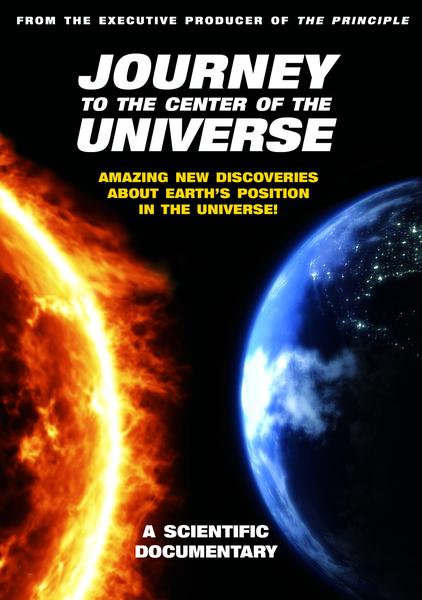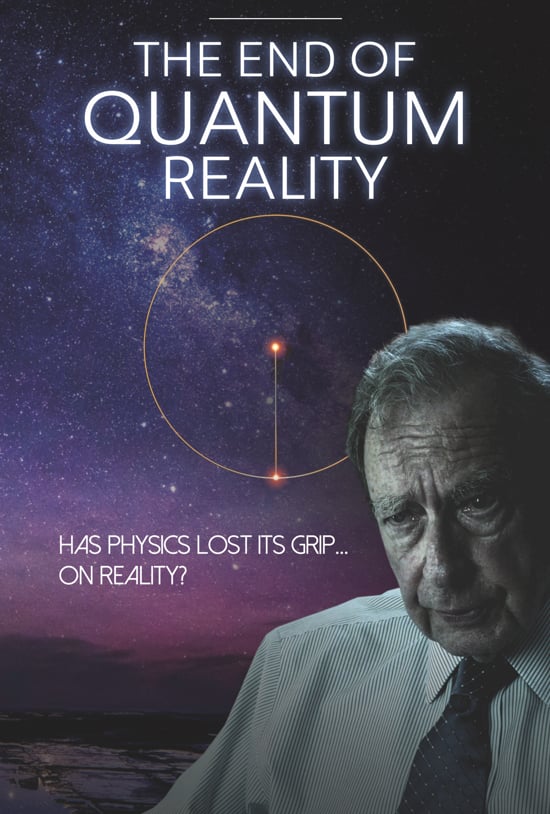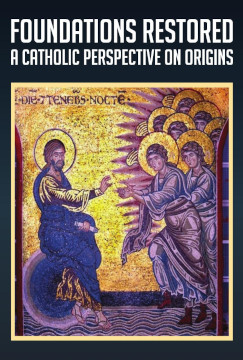- Welcome to St. Isidore forum.
Recent posts
#1
Catholic Resources / Re: Learning Latin resources
Last post by Geremia - Today at 03:11:32 AMQuote from: justjeff on February 10, 2026, 04:33:22 AMreading the early Church Fathers, like Augustine is much more complex and difficult than what was typical Church Latin in the Middle Ages.Yes, St. Augustine's Latin is more similar to classical Latin than the ecclesiastical Latin that St. Jerome initiated. St. Thomas Aquinas's Latin is actually the easiest; cf. Dr. Jeremy Holmes reading St. Thomas Aquinas's Compendium in Latin and explaining its grammar ex tempore in Latin.
You'd be interested in Latinist Christine Mohrman's Liturgical Latin: Its Origins and Character: Three Lectures.
Quote from: justjeff on February 10, 2026, 04:33:22 AMa main reason I wanted to learn (some?) Latin was to be able to read along in the missal without having to go back and forth with the English translation.For that purpose, I used Byrne, Simplicissimus Ecclesiastical Latin Course.
#2
Anti-Modernism / Re: «Rebel Hearts» (2021)
Last post by Geremia - Today at 12:17:04 AMQuote from: justjeff on February 10, 2026, 09:36:58 PMI'm not sure how to use magnet links.Use a torrent program like qBittorrent.
#3
Catholic Resources / Re: Learning Latin resources
Last post by Geremia - Today at 12:15:53 AMQuote from: justjeff on February 10, 2026, 04:33:22 AMFr. William Most apparently put together some useful resources for teaching his students ecclesiastical LatinHis method is the best I've seen, emphasizing both passive and active mastery.
Fr. Most's 📚 are already in the library.
#4
Anti-Modernism / Re: «Rebel Hearts» (2021)
Last post by justjeff - February 10, 2026, 09:36:58 PMThanks for those links & accompanying info.
"Rebel Hearts (2021)
"A look at Los Angeles's Sisters of the Immaculate Heart, nuns who challenged the patriarchal conventions of the Catholic Church 50 years ago and are still taking a stand today."
🧲 link: magnet:?xt=urn:btih:5e86f29c68d4261b4bcb61947a8d9732f8003557
Watch here."
Unfortunately that last link no longer seems to work, and I'm not sure how to use magnet links.
I did see the trailer though, and it reminds me of the Sisters of St. Joseph of Carondelet in St. Louis, MO. They had adverstised an LGBTQ+ event at their convent a couple of years or so ago and I went with some friends to stand on the sidewalk outside their facilities to pray a rosary before the event. We began praying on both sides of the driveway entering into their parking lot, praying out loud. Someone had brought a karaoke type speaker with a microphone and a priest was leading the prayers.
A woman came out while we were praying and wanted to know what we were doing there. She identified herself as the head of the order. The priest spoke with her for a bit saying that we were praying for God's mercy and protection, and that we felt that they were not teaching the fulness of the truth as taught by the magisterium of the Catholic Church, and therefore some people might be misled and souls could be lost.
There was some back and forth, but she agreed to let us continue to pray... of course, she didn't have much choice, given that we were on the easement of the street, on the sidewalk, and she had no authority to force us to leave. She did have her security guy there keeping an eye on us, and she did dialogue a bit more, trying to be gentle & said that she was happy that we were praying the rosary, but letting us know she disagreed with us and would prefer that we prayed elsewhere. A couple of people had signs, though I don't remember what they said. The people pulling into the lot for the event ignored us for the most part, but seemed a bit surprised & perhaps irritated in some cases.
When it got to be about 15 minutes before the start of the event, a friend of mine, his wife and I, decided to go in and see what they were going to say. I think the security guy went in to warn them that we were coming, but maybe the lady at the registration table had seen us praying at the street. In any event she told us that we couldn't come in. I reminded her that it was a public event, advertized throughout the archdiocese but she indicated that she was afraid we might cause trouble. I assured her that we would cause no trouble, we were just there to observe. She sent someone in to get the head nun who had come out to visit us at the street. She was emphatic that we were not welcome. No way... we had to leave.
So much for the "inclusion" and "accompaniment" that they proclaimed was needed in the Church, I guess.
Sadly, shortly after this experience I saw in the news that a local all girls high school that was having financial difficulty was being taken over by these nuns.
Heaven help us all.
"Rebel Hearts (2021)
"A look at Los Angeles's Sisters of the Immaculate Heart, nuns who challenged the patriarchal conventions of the Catholic Church 50 years ago and are still taking a stand today."
🧲 link: magnet:?xt=urn:btih:5e86f29c68d4261b4bcb61947a8d9732f8003557
Watch here."
Unfortunately that last link no longer seems to work, and I'm not sure how to use magnet links.
I did see the trailer though, and it reminds me of the Sisters of St. Joseph of Carondelet in St. Louis, MO. They had adverstised an LGBTQ+ event at their convent a couple of years or so ago and I went with some friends to stand on the sidewalk outside their facilities to pray a rosary before the event. We began praying on both sides of the driveway entering into their parking lot, praying out loud. Someone had brought a karaoke type speaker with a microphone and a priest was leading the prayers.
A woman came out while we were praying and wanted to know what we were doing there. She identified herself as the head of the order. The priest spoke with her for a bit saying that we were praying for God's mercy and protection, and that we felt that they were not teaching the fulness of the truth as taught by the magisterium of the Catholic Church, and therefore some people might be misled and souls could be lost.
There was some back and forth, but she agreed to let us continue to pray... of course, she didn't have much choice, given that we were on the easement of the street, on the sidewalk, and she had no authority to force us to leave. She did have her security guy there keeping an eye on us, and she did dialogue a bit more, trying to be gentle & said that she was happy that we were praying the rosary, but letting us know she disagreed with us and would prefer that we prayed elsewhere. A couple of people had signs, though I don't remember what they said. The people pulling into the lot for the event ignored us for the most part, but seemed a bit surprised & perhaps irritated in some cases.
When it got to be about 15 minutes before the start of the event, a friend of mine, his wife and I, decided to go in and see what they were going to say. I think the security guy went in to warn them that we were coming, but maybe the lady at the registration table had seen us praying at the street. In any event she told us that we couldn't come in. I reminded her that it was a public event, advertized throughout the archdiocese but she indicated that she was afraid we might cause trouble. I assured her that we would cause no trouble, we were just there to observe. She sent someone in to get the head nun who had come out to visit us at the street. She was emphatic that we were not welcome. No way... we had to leave.
So much for the "inclusion" and "accompaniment" that they proclaimed was needed in the Church, I guess.
Sadly, shortly after this experience I saw in the news that a local all girls high school that was having financial difficulty was being taken over by these nuns.
Heaven help us all.
#5
Catholic Resources / Learning Latin resources
Last post by justjeff - February 10, 2026, 04:33:22 AMI tried DuoLingo a couple of years or so ago and felt like I was learning the simple things pretty quickly, but then things seemed to escalate pretty quickly with lists to memorize. It started to dawn on me how different Latin is compared to English. Declensions, memorizing genders of words and so on looks like it will be difficult or take a long time.
I also noticed that DuoLingo wasn't going to be teaching me the ecclesiastical words and a main reason I wanted to learn (some?) Latin was to be able to read along in the missal without having to go back and forth with the English translation.
Of course being able to read encyclicals and historical documents like the writings from the Fathers of the Church would also be awesome, but it sounds like reading the early Church Fathers, like Augustine is much more complex and difficult than what was typical Church Latin in the Middle Ages.
In any event, I searched around and found links to what look like good resources that I saved. Fr. William Most apparently put together some useful resources for teaching his students ecclesiastical Latin, including some audio for pronunciation. I haven't tried any of these yet, but I hope to do so. I'll share the links in case they are of use to anyone else. The list isn't ordered very well, just some links I saved as I searched. Perhaps others can provide some useful insight and I can delete some that are now broken links, or duplicates or when better resources are available.
Learn Latin
Ecclesiastical Latin
https://learnchurchlatin.com/
https://www.churchlatin.com/biblia-sacra-latin-course
https://www.churchlatin.com/liturgical-latin
Latin by the Natural Method (Vol. 1), Fr. William Most
https://learnchurchlatin.com/2019/06/21/latin-by-the-natural-method-vol-1-fr-william-most/
Church Latin Links Master List
https://learnchurchlatin.com/2021/03/11/church-latin-links-master-list/
Latin vs. English: The Big Difference
https://learnchurchlatin.com/2019/06/14/latin-vs-english-the-big-difference/
-----------
Learn Church Latin for Free
https://stcatherinecenter.wordpress.com/2014/04/08/learn-church-latin-for-free/
Conquer Latin: 3 Tips
https://stcatherinecenter.wordpress.com/2019/03/08/conquer-latin-3-tips/
-----------
the new saint andrew bible missal
by missal commission - Publication date 1964
https://archive.org/details/newsaintandrewbi0000miss/page/n7/mode/2up
The missal in Latin and English, being the text of the Missale romanum with English rubrics and a new translation
by Catholic Church - Publication date 1949
https://archive.org/details/missalinlatineng0000cath
The Mantrina: A Latin Primer Especially Adapted to the Missal and Brevairy - no log in required - can download
by Cora Ilione Townsend - Publication date 1891
https://archive.org/details/mantrinaalatinp00towngoog/page/n5/mode/1up?q=missal
Missale Romanum Mediolani, 1474 - no log in required - can download
by Catholic Church - Publication date 1899
https://archive.org/details/missaleromanumm01churgoog/page/n28/mode/1up
------------
Dr Ed Peters - resources for Learning Latin
https://www.canonlaw.info/catholicissues_ecclatin.htm
Latin prayers etc. Dr. Edward Peters
http://www.canonlaw.info/latin_canticles.htm
Prayers etc in Latin
https://www.canonlaw.info/catholicissues_ecclatin.htm
A Primer of Ecclesiastical Latin (recommended by Dr Edward Peters)
by John F. Collins
https://www.amazon.com/dp/0813206677/ref=as_li_ss_til?tag=ednpejdjcd-20&camp=0&creative=0&linkCode=as4&creativeASIN=0813206677&adid=0NW043AEDHE4ASJEQNQ3
------------
Learn a new language for free: Latin!
https://thecatholicspirit.com/faith/focus-on-faith/practicing-catholic/learn-a-new-language-for-free-latin/
-----------
Learn a new language for free: Latin! - Deacon Nathan Allen
https://thecatholicspirit.com/faith/focus-on-faith/practicing-catholic/learn-a-new-language-for-free-latin/
Latin I, taught by Deacon Nathan Allen podcast
https://soundcloud.com/churchofsaintagnes/sets/latin-i
Latin Class II is taught by Dr. James May. These lessons presuppose familiarity with the rudiments of Latin grammar, specifically Units 1-13 in "A Primer of Ecclesiastical Latin" by John F. Collins. The course will begin with Unit 14: "Third Declension Nouns," and proceed to cover the remaining grammatical concepts in the Collins book.
https://soundcloud.com/churchofsaintagnes/sets/latin-ii
Latin Class III is taught by Dr. James May. These lessons presuppose familiarity with the rudiments of Latin grammar, specifically the first units in "A Primer of Ecclesiastical Latin" by John F. Collins. The course continues and will begin with Unit 25, covering the remaining grammatical concepts in the Collins book.
https://soundcloud.com/churchofsaintagnes/sets/latin-iii
Search learn ecclesiastical latin
https://www.google.com/search?client=avast-a-1&tbm=vid&sxsrf=ALiCzsaTbYaejY3GH8WfvRx1qF5WKvNkdQ:1660147870514&q=learn+ecclesiastical+latin&sa=X&ved=2ahUKEwiZy-Lg1Lz5AhWzKH0KHR3BBJIQ8ccDegQIOBAH
-----------------
Classical Latin
DuoLingo
https://www.duolingo.com/enroll/la/en/Learn-Latin
Lingua Latina per se illustrata : pars 1: Familia romana
by Oerberg, Hans H. (Hans Henning), 1920-2010
https://archive.org/details/lingualatinapers0000oerb/mode/1up
https://www.youtube.com/watch?v=t_Hm6HpnN5k
Lingua Latina Familia Romana Collection (11 vols.)
https://www.logos.com/product/36369/lingua-latina-familia-romana-collection
Your Catholic language; Latin from the missal (Log in to borrow)
by Ryan, Mary Perkins, 1912-1993
https://archive.org/details/yourcatholiclang0000unse/page/n1/mode/2up
------
Liturgical Latin Resources
https://www.romanitaspress.com/liturgical-latin-resources
Training Guide for Teaching the Latin Responses of Mass
https://769053fd-c0ab-470f-b1ea-064c35f37234.filesusr.com/ugd/2c712b_2699e8cb243c43a1bb043927e7abab3e.pdf
----------
THE LITURGIA LATINA PROJECT
http://liturgialatina.org/
-----
Learn Biblical Latin by reading the Vulgata
https://learnlangs.com/biblelatin/
Learn Biblical Latin by reading the Vulgata
Supplementary material
https://learnlangs.com/biblelatin/books.htm
Latin resources
https://www.latin-online-translation.com/links
-----------------
Dreamt of learning Latin? Here's how you'll finally do it
By Thomas V. Mirus ( bio - articles - email ) | Jan 29, 2025
https://www.catholicculture.org/commentary/dreamt-learning-latin-heres-how-youll-finally-do-it/
[Young men] should realize that this quotation from Cicero applies in a certain sense to them:
"It is not...so great a distinction to know Latin as it is a disgrace not to know it."
Pope St. John Paul II, 1978
------------------
I also noticed that DuoLingo wasn't going to be teaching me the ecclesiastical words and a main reason I wanted to learn (some?) Latin was to be able to read along in the missal without having to go back and forth with the English translation.
Of course being able to read encyclicals and historical documents like the writings from the Fathers of the Church would also be awesome, but it sounds like reading the early Church Fathers, like Augustine is much more complex and difficult than what was typical Church Latin in the Middle Ages.
In any event, I searched around and found links to what look like good resources that I saved. Fr. William Most apparently put together some useful resources for teaching his students ecclesiastical Latin, including some audio for pronunciation. I haven't tried any of these yet, but I hope to do so. I'll share the links in case they are of use to anyone else. The list isn't ordered very well, just some links I saved as I searched. Perhaps others can provide some useful insight and I can delete some that are now broken links, or duplicates or when better resources are available.
Learn Latin
Ecclesiastical Latin
https://learnchurchlatin.com/
https://www.churchlatin.com/biblia-sacra-latin-course
https://www.churchlatin.com/liturgical-latin
Latin by the Natural Method (Vol. 1), Fr. William Most
https://learnchurchlatin.com/2019/06/21/latin-by-the-natural-method-vol-1-fr-william-most/
Church Latin Links Master List
https://learnchurchlatin.com/2021/03/11/church-latin-links-master-list/
Latin vs. English: The Big Difference
https://learnchurchlatin.com/2019/06/14/latin-vs-english-the-big-difference/
-----------
Learn Church Latin for Free
https://stcatherinecenter.wordpress.com/2014/04/08/learn-church-latin-for-free/
Conquer Latin: 3 Tips
https://stcatherinecenter.wordpress.com/2019/03/08/conquer-latin-3-tips/
-----------
the new saint andrew bible missal
by missal commission - Publication date 1964
https://archive.org/details/newsaintandrewbi0000miss/page/n7/mode/2up
The missal in Latin and English, being the text of the Missale romanum with English rubrics and a new translation
by Catholic Church - Publication date 1949
https://archive.org/details/missalinlatineng0000cath
The Mantrina: A Latin Primer Especially Adapted to the Missal and Brevairy - no log in required - can download
by Cora Ilione Townsend - Publication date 1891
https://archive.org/details/mantrinaalatinp00towngoog/page/n5/mode/1up?q=missal
Missale Romanum Mediolani, 1474 - no log in required - can download
by Catholic Church - Publication date 1899
https://archive.org/details/missaleromanumm01churgoog/page/n28/mode/1up
------------
Dr Ed Peters - resources for Learning Latin
https://www.canonlaw.info/catholicissues_ecclatin.htm
Latin prayers etc. Dr. Edward Peters
http://www.canonlaw.info/latin_canticles.htm
Prayers etc in Latin
https://www.canonlaw.info/catholicissues_ecclatin.htm
A Primer of Ecclesiastical Latin (recommended by Dr Edward Peters)
by John F. Collins
https://www.amazon.com/dp/0813206677/ref=as_li_ss_til?tag=ednpejdjcd-20&camp=0&creative=0&linkCode=as4&creativeASIN=0813206677&adid=0NW043AEDHE4ASJEQNQ3
------------
Learn a new language for free: Latin!
https://thecatholicspirit.com/faith/focus-on-faith/practicing-catholic/learn-a-new-language-for-free-latin/
-----------
Learn a new language for free: Latin! - Deacon Nathan Allen
https://thecatholicspirit.com/faith/focus-on-faith/practicing-catholic/learn-a-new-language-for-free-latin/
Latin I, taught by Deacon Nathan Allen podcast
https://soundcloud.com/churchofsaintagnes/sets/latin-i
Latin Class II is taught by Dr. James May. These lessons presuppose familiarity with the rudiments of Latin grammar, specifically Units 1-13 in "A Primer of Ecclesiastical Latin" by John F. Collins. The course will begin with Unit 14: "Third Declension Nouns," and proceed to cover the remaining grammatical concepts in the Collins book.
https://soundcloud.com/churchofsaintagnes/sets/latin-ii
Latin Class III is taught by Dr. James May. These lessons presuppose familiarity with the rudiments of Latin grammar, specifically the first units in "A Primer of Ecclesiastical Latin" by John F. Collins. The course continues and will begin with Unit 25, covering the remaining grammatical concepts in the Collins book.
https://soundcloud.com/churchofsaintagnes/sets/latin-iii
Search learn ecclesiastical latin
https://www.google.com/search?client=avast-a-1&tbm=vid&sxsrf=ALiCzsaTbYaejY3GH8WfvRx1qF5WKvNkdQ:1660147870514&q=learn+ecclesiastical+latin&sa=X&ved=2ahUKEwiZy-Lg1Lz5AhWzKH0KHR3BBJIQ8ccDegQIOBAH
-----------------
Classical Latin
DuoLingo
https://www.duolingo.com/enroll/la/en/Learn-Latin
Lingua Latina per se illustrata : pars 1: Familia romana
by Oerberg, Hans H. (Hans Henning), 1920-2010
https://archive.org/details/lingualatinapers0000oerb/mode/1up
https://www.youtube.com/watch?v=t_Hm6HpnN5k
Lingua Latina Familia Romana Collection (11 vols.)
https://www.logos.com/product/36369/lingua-latina-familia-romana-collection
Your Catholic language; Latin from the missal (Log in to borrow)
by Ryan, Mary Perkins, 1912-1993
https://archive.org/details/yourcatholiclang0000unse/page/n1/mode/2up
------
Liturgical Latin Resources
https://www.romanitaspress.com/liturgical-latin-resources
Training Guide for Teaching the Latin Responses of Mass
https://769053fd-c0ab-470f-b1ea-064c35f37234.filesusr.com/ugd/2c712b_2699e8cb243c43a1bb043927e7abab3e.pdf
----------
THE LITURGIA LATINA PROJECT
http://liturgialatina.org/
-----
Learn Biblical Latin by reading the Vulgata
https://learnlangs.com/biblelatin/
Learn Biblical Latin by reading the Vulgata
Supplementary material
https://learnlangs.com/biblelatin/books.htm
Latin resources
https://www.latin-online-translation.com/links
-----------------
Dreamt of learning Latin? Here's how you'll finally do it
By Thomas V. Mirus ( bio - articles - email ) | Jan 29, 2025
https://www.catholicculture.org/commentary/dreamt-learning-latin-heres-how-youll-finally-do-it/
[Young men] should realize that this quotation from Cicero applies in a certain sense to them:
"It is not...so great a distinction to know Latin as it is a disgrace not to know it."
Pope St. John Paul II, 1978
------------------
#6
Forum-Related / Re: Suggestions & Problems
Last post by Geremia - February 07, 2026, 09:34:21 PMQuote from: justjeff on February 07, 2026, 08:46:12 PMI do see that the regular page (with javascript) does not show the book, True Obedience in the Church: A Guide to Discernment in Challenging Times by Kwasniewski, Peter, whereas the non-javascript/mobile version does show it as the first entry.They're exactly the same for me.
Quote from: justjeff on February 07, 2026, 08:46:12 PMI did a search for the book, thinking that perhaps it had been added a year or 3 earlier, but I couldn't find it under Peter A. Kwasniewski. A little later I noticed that Mr. Kwasniewski has a couple of entries as author. It looks like this book was entered as the only entry for Kwasniewski, Peter (sans the middle initial).Thanks for catching that. Human entry error. There shouldn't be two authors, "Kwasniewski, Peter" and "Kwasniewski, Peter A.".
#7
Forum-Related / Re: Suggestions & Problems
Last post by justjeff - February 07, 2026, 08:46:12 PMQuote from: Geremia on February 07, 2026, 03:47:28 AMQuote from: justjeff on February 06, 2026, 03:36:47 PMScreenshot of the standard viewIt looks like you have it sorted by ascending date, whereas the mobile one sorts the books by descending date. Click the third button from the right in the upper right corner to change the sort.
Thank you. I must have inadvertantly switched the order on the main/original page.
I do see that the regular page (with javascript) does not show the book, True Obedience in the Church: A Guide to Discernment in Challenging Times by Kwasniewski, Peter, whereas the non-javascript/mobile version does show it as the first entry.
I did a search for the book, thinking that perhaps it had been added a year or 3 earlier, but I couldn't find it under Peter A. Kwasniewski. A little later I noticed that Mr. Kwasniewski has a couple of entries as author. It looks like this book was entered as the only entry for Kwasniewski, Peter (sans the middle initial). I wouldn't think that that would explain why it is showing at the top of the mobile version, but not at the top of the normal version, but perhaps it is implicated somehow.
Sorry to be a bother. It isn't a big deal in the grand scheme of things & doesn't actually bother me. I'm just pointing it out in case it is something that you feel is worth looking into.
#8
Forum-Related / Re: Suggestions & Problems
Last post by Geremia - February 07, 2026, 03:47:28 AMQuote from: justjeff on February 06, 2026, 03:36:47 PMScreenshot of the standard viewIt looks like you have it sorted by ascending date, whereas the mobile one sorts the books by descending date. Click the third button from the right in the upper right corner to change the sort.
#9
General Discussion / CBDC - It Begins: This Is Thei...
Last post by justjeff - February 07, 2026, 03:29:36 AMby Whitney Web
Quote from: descriptionThis video examines how neoconservative power did not disappear after the Cold War or the War on Terror, but instead rebranded itself through technology, privatization, and the language of innovation. Using Peter Thiel as a central case study, the discussion traces how Palantir emerged directly from the wreckage of the Pentagon's post-9/11 Total Information Awareness program—an openly unconstitutional mass-surveillance initiative designed to predict crimes before they occur. Though Congress publicly defunded TIA after widespread backlash, its core architecture survived through privatization, with intelligence veterans, DARPA officials, and longtime neoconservative operatives quietly guiding Palantir's creation and early development for the CIA.
The conversation goes further, showing how "pre-crime" logic has expanded beyond intelligence agencies into emergency services, policing, and domestic governance through companies like Carbyne, whose board once included Jeffrey Epstein–linked figures and intelligence veterans from the U.S. and Israel. The deeper argument is not simply about surveillance, but about power: how predictive algorithms replace due process, how compromised elites are elevated rather than punished, and how blackmail—once run through human networks—has increasingly been automated through data collection. In this framework, Epstein is not an anomaly but a symptom, rendered obsolete by a system that no longer needs personal coercion when digital lives can be harvested, analyzed, or fabricated at scale.
Turn on notifications to stay updated! 🔔🔔🔔
Here, we transform original content from interviews, lectures, podcasts, and keynotes featuring Whitney Webb to provide viewers with a more immersive and engaging experience. Our goal is to educate and inform as many people as possible about Whitney Webb's unique economic insights and critiques of global capitalism.
We also strive to make Whitney Webb's ideas more accessible to individuals with hearing impairments by providing professional transcriptions for the majority of our videos.
By enhancing the original content with cinematic editing, improved clarity, and added context, we aim to amplify Whitney Webb's message and help more viewers understand the economic and social issues she addresses.
upload_date: 20260207
#10
Forum-Related / Re: Suggestions & Problems
Last post by justjeff - February 06, 2026, 03:36:47 PMYes, sorted differently, and it looks quite different, though I would expect the formatting to look different.
Screenshot of the standard view:

vs
Screenshot of https://isidore.co/calibre/mobile

Screenshot of the standard view:

vs
Screenshot of https://isidore.co/calibre/mobile







